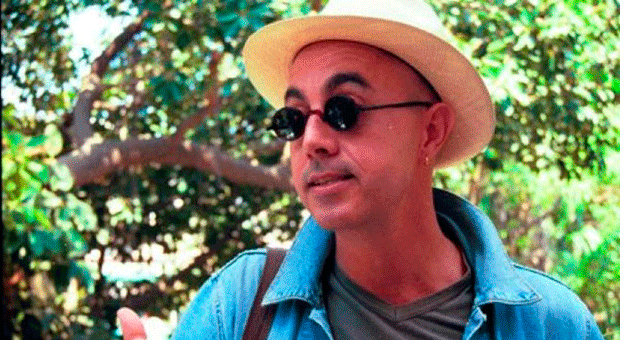Producer Juan Carlos Cremata Malberti tackled the issue of life after death to talk about life in his latest films Crematorio, en fin… el mal and Crematorio II Más allá del bien y del… mar.
These films were premiered at the Chaplin Movie Theater during the second day of ICAIC’s Young Sample (ICAIC: Cuban Film Institute by its acronym in Spanish) and the screening was attended by a large crowd. On his way out, OnCuba talked with Cremata, also the director of Nada and El premio flaco, who devoted three years for the production of his latest short films, including the full length film Contigo pan y cebolla and some theater plays.
It doesn’t begin as usual, it begins with the second film because it goes backwards, Cremata said.
Juan Carlos Cremata, also the director of the several times awarded film Viva Cuba, noted: “At the beginning the idea was to make a full length film that included the three short films but then I decided to produce them separately. The first one lasts 32 minutes and the second one 26. I shoot the third one along with Orlando Manrulfo (Mariconchi), but I’m not satisfied with it so I will shoot it again with the same actor, who interprets two characters. That’s something I owe him but I didn’t get what I wanted and as you know I’m very demanding with my work.”
How did you come up with this idea for the films?
The script of the first one, which is a choral short film, was written by Carlos Lechuga and me, and the second one with Eduardo Eimil. The first one, which is actually the second as I told you before, came out of a project of five stories on the different stages of the Cuban Revolution that was going to be produced by 5 directors. Enrique Pineda Barnet would shoot the 60’s, Juan Carlos Tabío the 70’s, Jorge Luis Sánchez the 80’s, Fernando Pérez the 90’s and I would shoot from 2000 on. The project failed but I still had the desire of making mine because I always believed in it. Then, I presented it to ICAIC and incredibly they approved it as well as the second one.
Why do you say ´incredibly´?
During the shooting, technicians and actors constantly asked me: Are you sure that ICAIC approved this? It is true that the scrip is a bit harsh. It deals with the Cuban contemporary society, especially issues that are not frequently tackled in the media. The first one takes place in a wake, the second one in a cemetery and the third one is in heaven or hell.
I gave them such titles from a suggestion by Lechuga who thought Crematario and Cremata sound similarly, in addition to the fact that its is easy to translate and it is suitable from the commercial point of view. Besides, it places the audience right away within the context of the story, in which we used death as pretext to talk about life.
So, what are the short films about?
We used as starting point the death of a reluctant and recalcitrant old activist, who passed away with his arm up in front of his TV while watching the broadcasting of a demonstration at the Anti-imperialist Tribune. His family starts to reproach the deceased what he had left behind. His diverse family (Sheila Roche, Nancy Gonzalez, Waldo Franco, Miriam Socarrás, among others), a Santero grandson, a transvestite, a daughter coming from Miami, and other colorful characters represent many people living in Cuba today. It is a black humor story which we dedicated to late Daniel Díaz Torres, a great filmmaker. I never had the chance to tell him, but I have always said this film of mine is the most similar to his style, which is characterized by jokes and irony. Humor in the second one is more about reflections. It is about two women (Aurora Pita and Fátima Patterson) talking about the past, the present and the future in a cemetery. During the conversation, you realize what it is all about: they are two dead women still talking about life and a unique reality.
Are you satisfied?
I’m very pleased with this work, which has given me the chance to explore comedy because there is a different kind of humor in each short film. One is more reflexive, and the other is hilarious. I have to thank ICAIC’s Young Sample for rescuing that space for special presentations and for giving me the opportunity to screen this work, which was to be screened at the last International New Latin American Film Festival but I had to take it back due to some issues that came up at the event. As you have seen, the audience is pleased and they have congratulated me and I quote “for being brave when tackling such complex issues not everyone would”. I’m satisfied because I believe I think it fulfilled its purpose, which was to have fun rather than to criticize.










